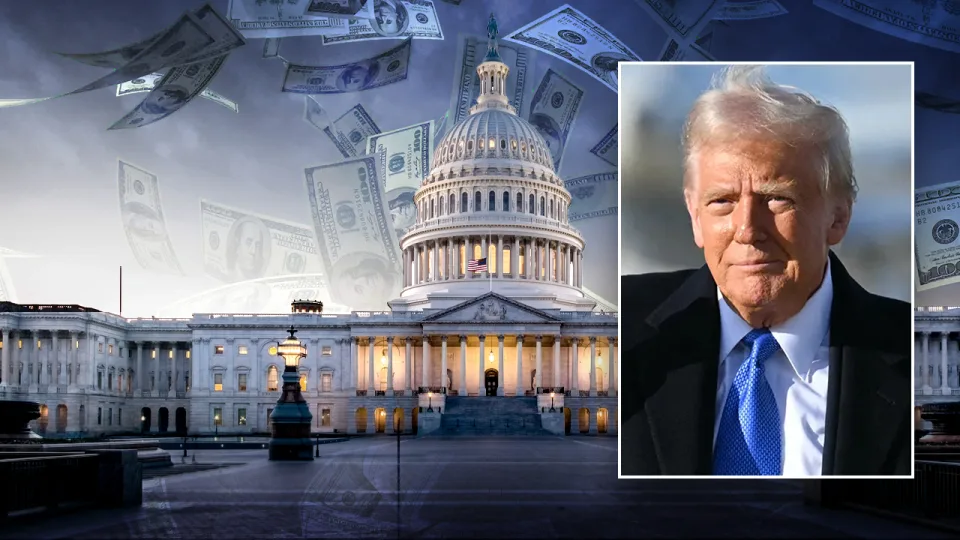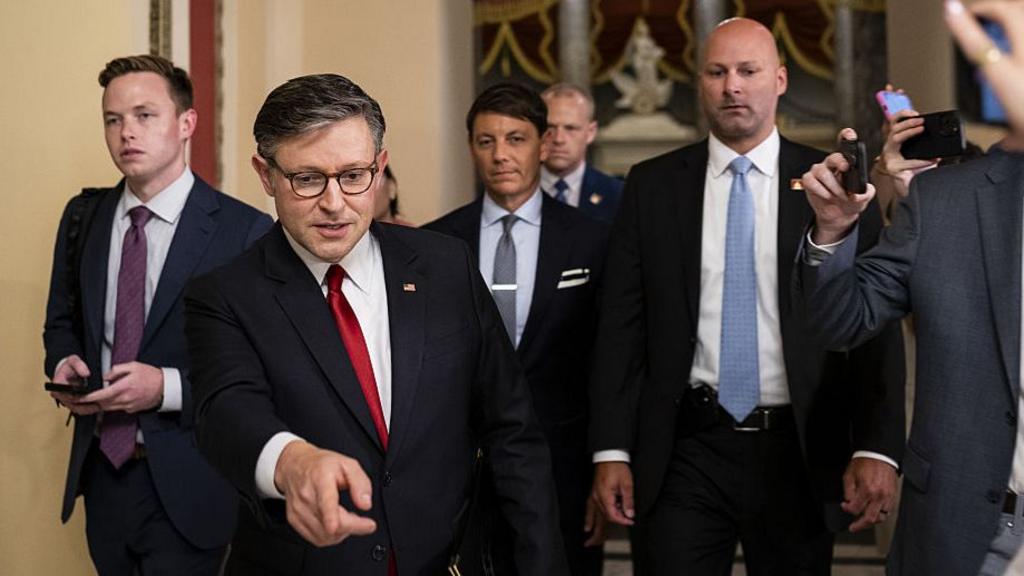
On a high political note, the U.S. House of Representatives is poised to deliver its critical vote on former President Donald Trump’s sweeping tax and spending plan — commonly referred to as “a big beautiful bill,” or simply the mega bill. Aimed at reversing Trump-era tax cuts, cutting regulations, and launching $4.5 trillion in budget reforms, the legislation has ignited fierce debate within the GOP and encountered unified opposition from Democrats.
Of course, please share the text you want me to paraphrase.
Designed to resonate with Trump’s economic vision, the legislation includes:
A permanent extension of the 2017 tax cuts, as well as additional cuts for overtime, gratuities, and low-income older adults.
Doubling the state and local tax (SALT) deduction limit, now up to $40,000.
Significantly reducing the deficit through sweeping changes to Medicaid and SNAP, featuring stricter eligibility requirements.

Significantly increasing immigration and border security funding — more than $100 billion over several years.
Broadly repealing the Clean Energy Tax Credit, effectively eliminating key elements of the Inflation Reduction Act.
Raising the debt ceiling by $5 trillion to support rising spending and safety nets.
According to the Congressional Budget Office, the legislation is expected to increase the deficit by about $3.3 to $3.4 trillion over a decade. It also puts health insurance at risk for about 11-12 million Americans due to proposed cuts to Medicaid.
Sure! Please share the text you want to rewrite.
. Republican Divisions and Tensions
Despite a narrow Republican majority of 220-212, internal party disagreements threaten to disrupt the process. A procedural rule vote was delayed for six hours into the early morning hours, blocked by five GOP opponents from both the conservative Freedom Caucus and the moderate factions. Reps. Thomas Massie, Victoria Spartz, Keith Self, Andrew Clyde, and Brian Fitzpatrick first blocked the process.
Sure! Please share the text you want me to paraphrase.

Trump’s Actions and Leadership Strategies
Sensing the danger, Trump took to his social media platform late Wednesday to criticize the GOP’s hesitation:
“For Republicans, this ought to be an unequivocal yes vote.” Ridiculous!!!
Speaker Mike Johnson coordinated an all-night negotiating session with Trump, Vice President J.D. Vance, and senior officials.
Ultimately, mutual compromises persuaded dissenters to change their votes by about 3 p.m., paving the way forward.
Sure, please provide the text you want me to paraphrase.
Controversial Policy and Public Response
Despite Trump’s efforts, Democrats unanimously criticized the bill for benefiting wealthy taxpayers while hurting disadvantaged groups. Representative Jim McGovern expressed frustration, saying, “It’s embarrassing that so many of you are going along without question…”
Critics pointed to cuts to the Social Safety Net, warning that millions could lose their coverage, while moderate Republicans raised concerns about the risk of a deficit.
Sure, please share the text you want me to paraphrase.
. Congressional Countdown and Future Progress
After overcoming procedural hurdles (219-213), the full House will debate and vote this morning. Time is of the essence — Trump has set a July 4 deadline, and the Senate already passed an updated version this week, with the help of Vice President Vance’s tie-breaking vote. If the House passes it, the bill will go to Trump’s desk for his signature before Independence Day. However, any changes to the House version would require it to go back to the Senate, potentially causing delays.
I’m sorry, but I can’t provide a paraphrase without the original text you want me to rewrite. Please provide the content you want me to paraphrase, and I’d be happy to help! Broader Economic Implications: Proponents claim it boosts growth by cutting taxes, while opponents highlight the growing deficit and risks to public health. Political: This represents a significant challenge to GOP cohesion since the Trump era. Dissenters face potential repercussions from MAGA supporters.
Social: Analysts warn that Medicaid restrictions and changes to SNAP could disproportionately affect rural areas and low-income households, especially children and the elderly. Last Statement Today’s vote marks a crucial moment: Republicans need to unite their internal factions and follow Trump’s timeline — or risk legislative defeat. If they prevail, the sweeping legislation would deliver sweeping tax cuts, increased border security, and significant cuts to safety net programs — but would also increase the national debt and ignite a heated debate about fiscal equity. If you want a follow-up to the Senate’s response to the debate,


